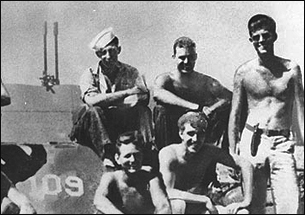Is Obama Tough Enough?
Is Obama Tough Enough?
tk
CBS television has announced that it will become the first major broadcast network to air cage fighting, or as it is more formally known, mixed-martial arts. The violence of the sport, in which the rules allow opponents to kick, knee, or punch each other, has in the past relegated it to late-night cable. But CBS is betting that we have entered an era in which cage fighting will prove a turn-on rather than a turn-off for mainstream audiences.
 The calculation is one that may well pay dividends for CBS, and it has a parallel in the campaign advice that was publicly given Barack Obama following his defeats in the Ohio, Texas, and Rhode Island primaries. On March 6, two days after the Ohio, Texas, and Rhode Island primaries, the New York Times carried a front-page story that declared: “Lesson of Defeat: Obama Comes Out Punching.”
The calculation is one that may well pay dividends for CBS, and it has a parallel in the campaign advice that was publicly given Barack Obama following his defeats in the Ohio, Texas, and Rhode Island primaries. On March 6, two days after the Ohio, Texas, and Rhode Island primaries, the New York Times carried a front-page story that declared: “Lesson of Defeat: Obama Comes Out Punching.”
But for Obama, who with his eloquence and cool has been compared to John F. Kennedy in 1960 (and who has won the support of Caroline and Ted Kennedy and former Kennedy speechwriter Theodore Sorenson), the advice that he has been given to adopt a take-no-prisoners strategy has also shown how limited the Kennedy comparison was.
In his race against Richard Nixon, Kennedy, who had called on the country to begin an era of renewal, never had to prove he was tough. He was a war hero, the young naval lieutenant who in 1943 had rescued his men when the torpedo boat he commanded was cut in two by a Japanese destroyer. Kennedy’s wit, his Harvard education, and his wealth were never held against him. As far as the public was concerned, he had proved his mettle in combat.
Obama, who at forty-six is three years older than Kennedy was in 1960, has no such record to fall back on as far as voters are concerned. They do not believe that he has been tested in a life-and-death situation, and nobody close to him has offered up the kind of psychological portrait that prompted historian and Kennedy aide Arthur Schlesinger Jr. to write in his Journals, “In Jack Kennedy the will to victory and the will to command are both plain and visible. . . . I also believe him to be a devious and, if necessary, ruthless man.”
In the upcoming Pennsylvania primary, Obama thus faces a crucial test. A big loss in another state that Democrats will depend on in November weakens his momentum during a shaky period. Clinton backers are now pointing to the fact that the states she has won add up to 219 Electoral College votes while those in the Obama column contain only 202 electoral votes. Obama is going to have to show that he is tough without recourse to the kind of “kitchen-sink,” negative politics that he has criticized.
That opportunity is at hand, and it comes with both an upside and downside. In his breakthrough March 18 speech, “A More Perfect Union,” Obama condemned the racially inflammatory sermons of his pastor, the Reverend Jeremiah Wright Jr., but he did not condemn Wright himself or minimize their long relationship. The distinction is an important one. It may hurt with voters who ask why, if Obama truly disagreed with Wright, he did not join another church; yet it is hard to imagine that anyone who has stuck by a buddy or a family member will fail to grasp what Obama was doing—or fail to see the toughness behind his loyalty.
Nicolaus Mills, a professor of American Studies at Sarah Lawrence College, is author of Winning the Peace: The Marshall Plan and America’s Coming of Age as a Superpower. Photo: JFK and fellow sailors aboard PT 109 (Naval Historical Center / Public Domain).






